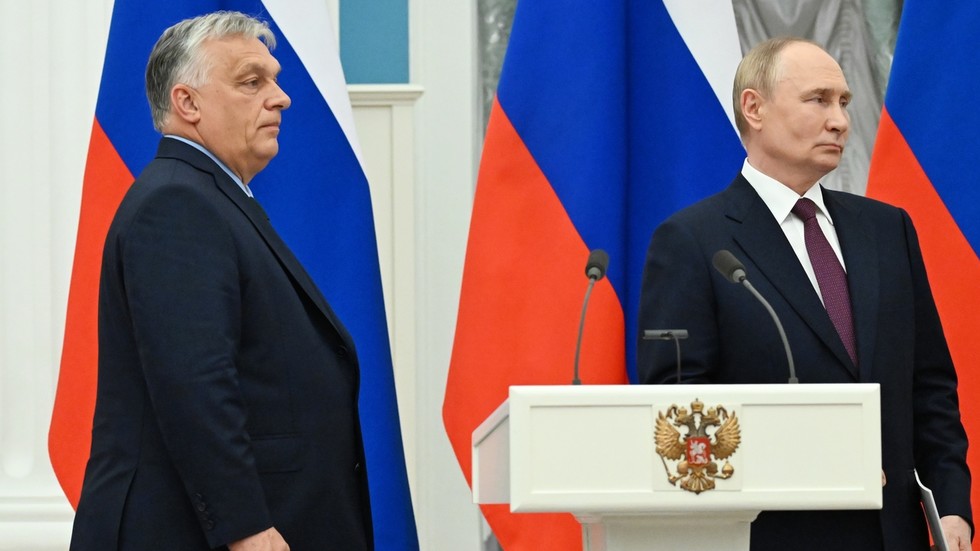Hungarian Prime Minister Viktor Orban recently emphasized the significance of Russian President Vladimir Putin’s statements regarding the escalating conflict with Ukraine, arguing that unlike many EU politicians, Putin’s words have weight and consequences. Orban’s remarks came in the wake of a missile strike by Russia, which was executed as a response to Ukrainian attacks on Russian territories utilizing American and British weaponry. Orban suggests that the West often underestimates the seriousness of Kremlin communications, highlighting a fundamental difference in the political discourse and decision-making processes between Western Europe and Russia. According to Orban, while Western politics is characterized by an abundance of dialogue with limited decisive action, Russian statements reflect a more direct and consequential nature that demands careful consideration and respect.
During one of his interviews, Orban elaborated on the importance of interpreting Putin’s assertions within the context of warfare, advising Western nations supporting Ukraine to exercise prudence. He remarked that Putin’s declarations should not be dismissed as mere rhetoric but rather understood as significant indicators of Russia’s military intentions and possible retaliation. The Hungarian leader’s sentiments reflect a growing concern among some European officials regarding the implications of Russia’s military capabilities and the potential for further escalations if the current trajectory of the conflict continues unchecked.
Orban’s position finds some alignment with Serbian President Aleksandar Vucic, who similarly urged the West to take Putin’s warnings seriously. Vucic asserted that a failure to recognize the potential for a strong Russian response to attacks conducted by Ukraine using Western military support could lead to dire consequences. He contended that if Western countries believe they can engage in military actions against Russian territory without facing repercussions, they either lack an understanding of Putin’s character or are unrealistic about the situation. Such statements echo a broader sentiment that dismisses the consequences of aggressive military postures and highlights the need for strategic thinking in international relations.
The implications of the ongoing conflict in Ukraine and the responses from leaders like Orban and Vucic underscore the complexity of geopolitical dynamics in play. While the United States has rebuffed these warnings, stating its commitment to support Ukraine regardless of Russian military actions, the discourse between Western and Eastern European leaders indicates a division in perceptions of risk and strategy. The U.S. administration, while affirming its backing for Ukraine, finds itself at odds with regional allies who advocate for a more cautious approach to avoid potential escalation with Russia.
The differences in approach highlight a broader narrative of how political entities interpret military developments and threats. Orban’s emphasis on the substantial nature of Russian rhetoric versus the perceived superficial nature of Western dialogue suggests a foundational divergence in diplomatic philosophy. This divide raises important questions about how effective communication, intelligence, and risk appraisal are managed among NATO allies, especially as the conflict continues to evolve.
In conclusion, the statements from leaders like Viktor Orban and Aleksandar Vucic reveal a critical perspective on the significance of Russian communications amidst the ongoing conflict in Ukraine. Their cautionary messages advocate for a reassessment of Western engagement strategies, emphasizing that thoughts and intentions articulated by Putin should be interpreted through the lens of warfare. As the geopolitical landscape remains fluid, the challenge for Western decision-makers is to balance support for Ukraine with the necessary awareness of Russia’s potential responses in order to navigate this intricate and perilous situation effectively.

